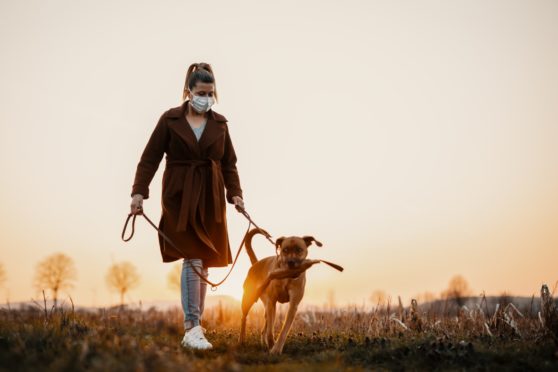
Dogs have long been part of family life. They are wonderful companions so I understand why, in lockdown, many people have bought puppies.
As vast numbers have been furloughed, lost their jobs, or are forced to work alone from home, anxiousness, depression and loneliness have become commonplace.
Well-behaved dogs make great pets, but time and work has to be invested in a puppy to ensure it is not only good with people and other dogs, but also will not worry livestock. There is so much more to dog ownership than just making the purchase.
There are many respectable breeders, but there are also some just looking to make a profit at any cost – leading to heartbreak for new dog owners whose pups become ill due to bad breeding conditions.
Unfortunately, the number of illegal puppy farms seems to be on the rise. In October 2020 alone, the Scottish Society for the Prevention of Cruelty to Animals (SSPCA) launched 78 investigations into reports of puppy farming.
“We have seen a rise in the extortionate prices of puppies and the number of puppies becoming sick or dying because they have been badly bred,” says the SSPCA’s chief inspector, Mike Flynn.
“The society has never objected to anyone making money from selling well-bred, well-socialised, healthy pups that will go on to have a happy and loving life – but these breeders are not the problem.”
The unfortunate animals bred in puppy farms may be stressed and ill, and have often been cruelly treated.
“It’s hard to gauge the number of pups being sold at the moment as members of the public only inform us when something goes wrong.
“Many calls are from those who have tried everything to save their new puppy, but they’ve been put to sleep or have just died due to health issues or disease. We regularly hear stories from those who have paid £2,500 for a pup, and then double that in vet’s fees.”
The SSPCA states that as many as two in five pups bought online die before their fifth birthday due to poor breeding and ill treatment in the first weeks of their life.
The price of puppies online has also risen. “Designer dogs” – crossbreeds like cockapoos (cocker spaniel/poodle), chugs (Chihuahua/pug), frugs (French bulldog/pug), and Cavadoodles (Cavalier King Charles spaniel/poodle) – sell for four figures.
Puppies that sold for £600-£800 less than a year ago are now sold for £2,500-£4,000. Animal welfare charities warn that this price hike could encourage puppy farming, smuggling or dog theft.
An adorable photograph often accompanies online ads, and a mobile number, while other details are minimal. And that should fuel suspicion.
If you have doubts about an advert, you can enter the mobile number into an internet search engine and see how many times it has been used to sell puppies before. This can reveal the depth of the problem.
After seeing an advert, you must insist that you visit the breeder to view the litter with its mother. If we’re still under pandemic restrictions and this is not possible, you must be patient. It’s hard to walk away, but you must.
Alternatively, you could consider a pet from a rescue centre as re-homing a dog can be rewarding.
“There is another issue,” Mike says, “The Covid-19 lockdown has resulted in people who previously would have had no intention of taking on a pup, buying one as a lockdown companion.
“We are concerned that when restrictions ease, some dogs will never have lived a life where the owner is not always present.
“When the owner returns to work, we expect some dogs to suffer from separation anxiety and subsequent behaviour problems. If this happens, we would ask people to be patient and to work with professionals to solve the problem, not relinquish the animal or sell it on.”
Mike also explains pet theft is common with dogs stolen from unlocked vehicles, and kennels, or snatched when left tied up in the street while owners are shopping.
“These criminals see a cute dog and think of the possibility for a quick sale. They think that they could breed from it and sell pups to make money.
“No one would leave a £2,000 bike outside and be surprised if it was not there when they returned. A thief doesn’t see a cute dog as someone’s loved pet – simply something to sell on for profit.”
During 2020 the SSPCA expected an increase in the number of pups available for festive sales leading to repercussions of cruelty and abandonment long into the New Year. In 2021, it seems likely to be worse than ever. As more people lose their jobs, they may no longer be able to pay for dog food or vet’s fees. It could result in abandonment.
“Abandoning a dog is a criminal offence, this is something they simply must never do.”
Not for nothing is a dog deemed man’s best friend. Patience and research in finding the right companion is key to avoiding disaster. By buying a puppy from an unreliable source, you are helping to fuel this despicable trade.

Enjoy the convenience of having The Sunday Post delivered as a digital ePaper straight to your smartphone, tablet or computer.
Subscribe for only £5.49 a month and enjoy all the benefits of the printed paper as a digital replica.
Subscribe